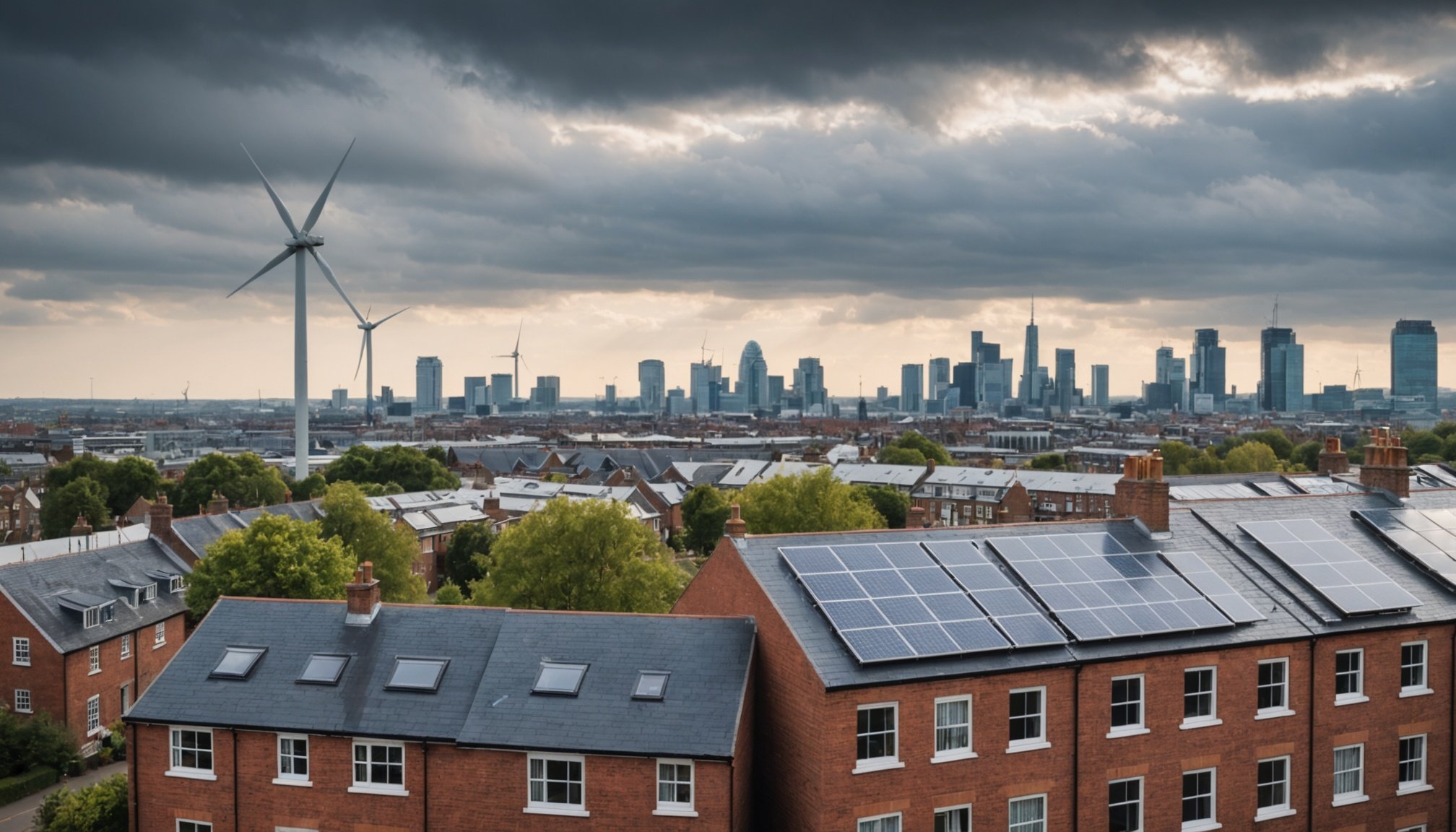Overview of Energy Efficiency Regulations in the UK
As the UK focuses on sustainability, understanding energy efficiency regulations is crucial for property owners. Recent government standards demand businesses and households to comply with stringent requirements. Compliance is essential not only to meet these standards but to avoid potential penalties associated with non-compliance.
The UK government has established regulations mandating energy efficiency to enhance the overall environmental impact of properties. These regulations require property owners to implement upgrades that meet specific energy efficiency benchmarks. Failure to comply could result in substantial financial penalties, thus, property owners are advised to stay informed about the latest requirements.
Have you seen this : Discovering homeownership: a guide for uk residents to utilize digital-only banks for mortgage solutions
Adhering to energy regulations can significantly benefit both residential and commercial properties. It not only helps in avoiding penalties but also plays a pivotal role in reducing energy costs over time. Compliance ensures that properties are in line with national sustainability goals, facilitating a reduction in greenhouse gas emissions.
Property owners are encouraged to regularly review and update their properties to conform with evolving UK government standards. By doing so, they contribute positively to environmental preservation while securing potential financial savings. Understanding and integrating these compliance requirements fosters responsible property management and contributes to a broader environmental responsibility.
In parallel : Smart tactics for uk homeowners facing soaring mortgage rates in the current economic climate
Benefits of Improving Energy Efficiency
Enhancing energy efficiency in properties bears substantial benefits. One primary advantage is the financial savings homeowners and businesses can achieve. By implementing energy-efficient upgrades, occupants can experience reduced energy bills over time. As energy consumption decreases, the cost savings can be significant, leading to a notable reduction in utility expenses.
Improving energy efficiency also positively affects property value. Properties with higher energy ratings tend to be more attractive in the market. This increase in property value and marketability is driven by the growing demand for sustainable and cost-effective living environments. Buyers are increasingly prioritising homes with better energy efficiency ratings, which can lead to quicker sales and higher selling prices.
Additionally, energy-efficient properties contribute to a lower environmental impact. By reducing reliance on non-renewable energy sources, property owners can significantly lower their carbon footprint. This reduction is crucial for promoting environmental sustainability and aligns with broader UK government standards for reducing greenhouse gas emissions. Adopting energy-efficient practices not only benefits property owners financially and increases property value, but it also plays a critical role in fostering environmental responsibility.
Strategies for Enhancing Energy Efficiency
Implementing energy-efficient upgrades is essential in creating a sustainable home environment. Numerous improvement strategies can be employed to maximise energy conservation.
Insulation Enhancements
Achieving optimal insulation levels can greatly enhance a property’s energy efficiency. Insulation acts as a barrier to heat transfer, reducing the need for heating in the winter and cooling in the summer. Common insulation materials effective for UK homes include fiberglass, mineral wool, and cellulose. A cost vs. benefit analysis shows that while the initial investment may vary, the long-term savings on energy bills make these enhancements worthwhile.
Energy-Efficient Heating Solutions
Modern heating technologies provide significant advancements in energy efficiency. There is a shift towards renewable heating solutions, such as heat pumps and solar heating systems, offering considerable energy savings compared to traditional systems. Upgrading to these systems is often supported by governmental incentives, helping to offset costs and encourage sustainable practices.
Upgrading Windows and Doors
The quality of windows and doors impacts a home’s energy efficiency. Opting for energy-efficient options, like double glazing or argon-filled windows, improves insulation and reduces energy loss. Financing options are available to assist homeowners in making these improvements, ensuring that upgrading is both accessible and affordable.
Financial Incentives and Support Programs
For property owners seeking to enhance energy efficiency, the UK offers various government schemes designed to provide financial aid and energy efficiency grants. These initiatives aim to alleviate the cost of implementing energy-efficient upgrades by providing substantial support. One prominent scheme is the Green Homes Grant, which covers a portion of the cost for installing insulation or low-carbon heating systems.
Government initiatives like the Energy Company Obligation (ECO) require energy suppliers to fund energy efficiency improvements in eligible households. This can include measures like loft or wall insulation and boiler upgrades, substantially reducing the financial burden on property owners. Engaging with these programs can lead to long-term cost savings by decreasing energy bills and enhancing property value.
Accessing funding and support programs is straightforward. Homeowners should frequently consult the government portal for updates on available grants and eligibility criteria. By harnessing these financial incentives, property owners can not only reduce upfront costs but also support the transition to a more sustainable living environment. Over time, leveraging these initiatives can lead to significant financial benefits, alongside fulfilling broader environmental goals.
Case Studies of Successful Energy Efficiency Improvements
Exploring real-life examples of energy efficiency advancements can provide invaluable insights for homeowners. These success stories illustrate how strategic enhancements can be effectively implemented.
One notable case involves a London-based development that employed state-of-the-art energy-efficient upgrades to achieve remarkable reductions in energy consumption. By integrating solar panels and advanced insulation, the property cut its annual energy costs by nearly 40%. This not only translated to significant financial savings but also enhanced its market value appreciably.
In another instance, a small business in Manchester utilised sustainable practices by upgrading to a heat pump system. This single change resulted in a 30% decrease in energy bills. The company’s commitment to sustainability will further its environmental goals by significantly lowering their carbon footprint.
A key takeaway from these case studies is the importance of implementing best practices. These include thoroughly evaluating energy needs, understanding available technologies, and leveraging government schemes for financial support. For property owners and businesses, adopting such strategies can lead to substantial long-term benefits while contributing to environmental preservation. Ultimately, these stories highlight the practical application of energy-saving measures and their expansive rewards.
Resources for Further Guidance
For property owners eager to navigate the complex field of energy efficiency, a multitude of resources is available to offer comprehensive guidance. These resources equip owners with practical checklists and policy documents that streamline the application of energy strategies.
Property owners can utilize detailed guides specifically designed to break down various energy-efficient upgrades. These guides cover critical areas such as insulation, heating solutions, and building materials, helping homeowners make informed choices that align with UK government standards.
To ensure successful implementation, checklists are invaluable. They assist owners in tracking progress, ensuring each aspect of a project meets relevant compliance requirements. Checklists might include steps for enhancing insulation integrity, selecting appropriate windows and doors, or assessing overall energy consumption.
Access to policy documents provides clarity regarding legislative mandates, offering essential information about national standards and potential penalties. These documents are updated regularly, reflecting the most current regulatory expectations and helping owners avert compliance missteps.
Finally, exploring external resources can expand understanding, offering deeper insights into best practices and technological advancements. These tools collectively support responsible energy management, bridging the gap between policy comprehension and practical application.

